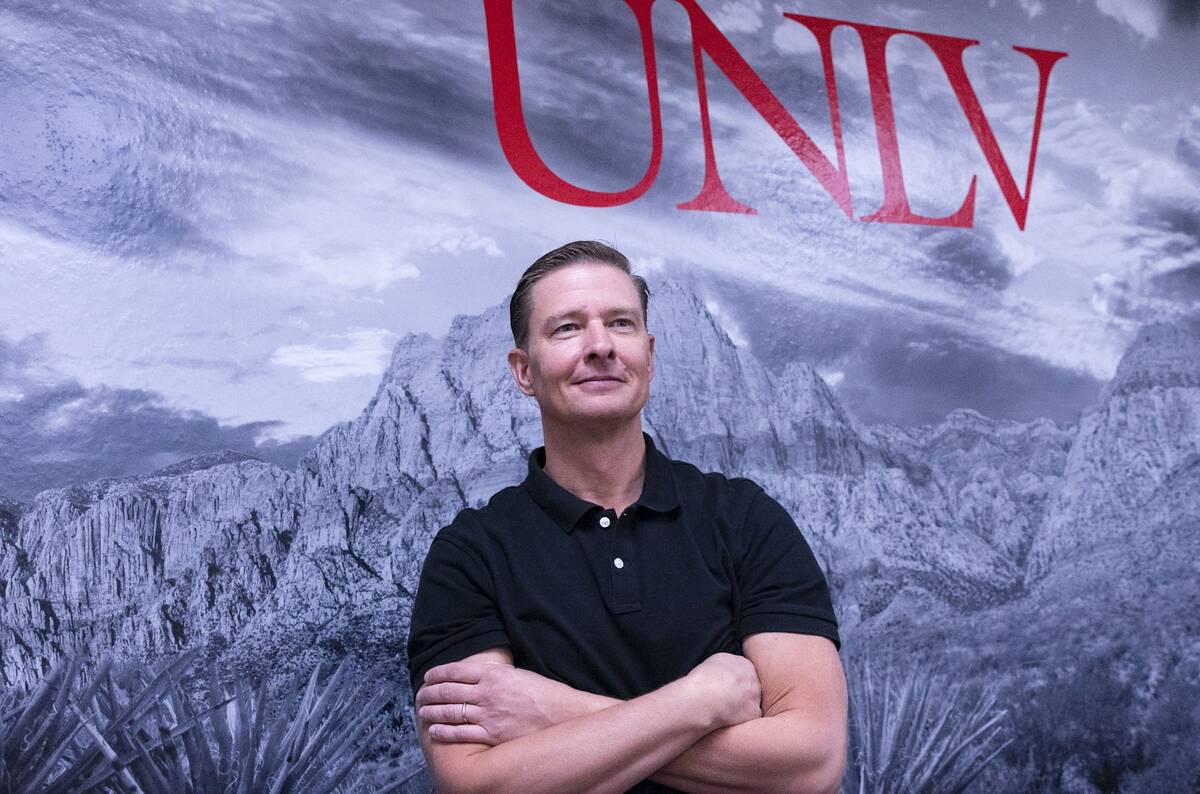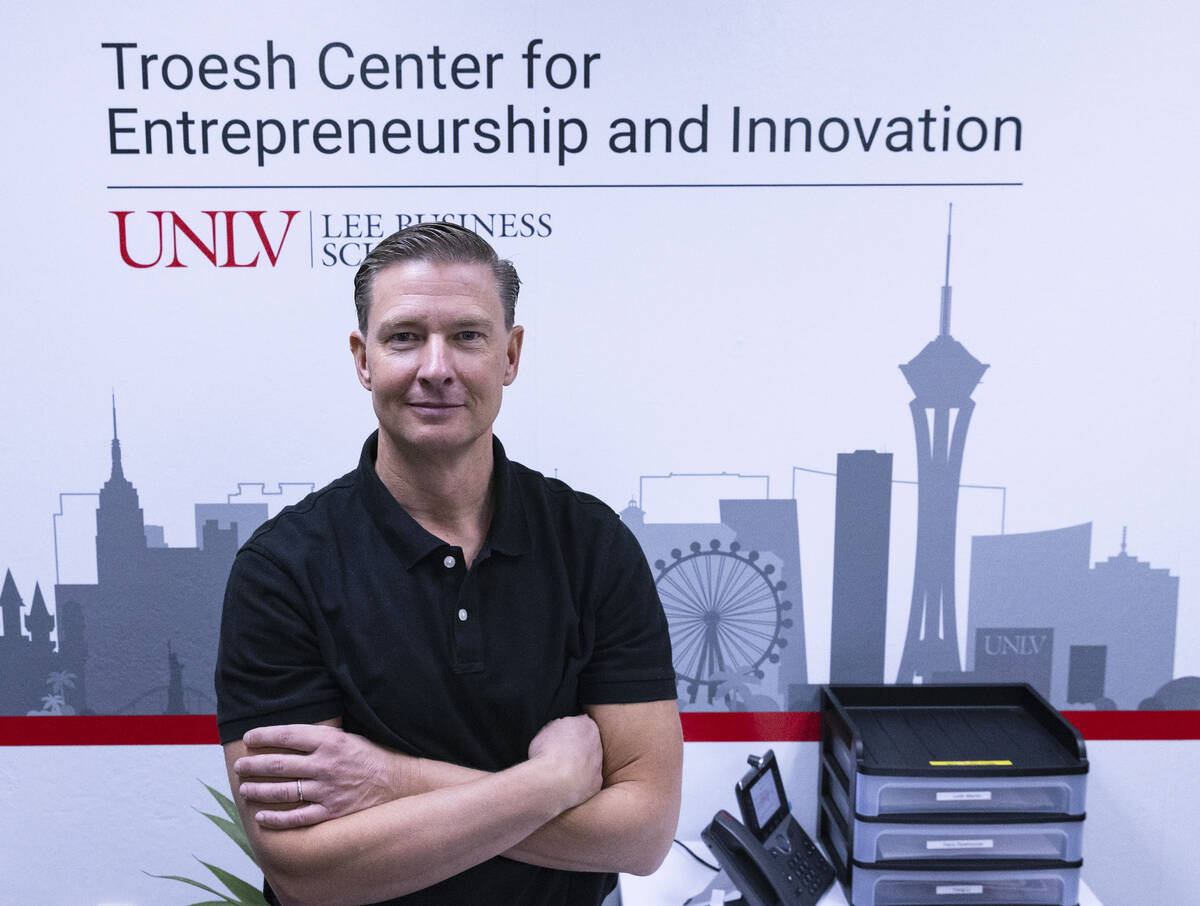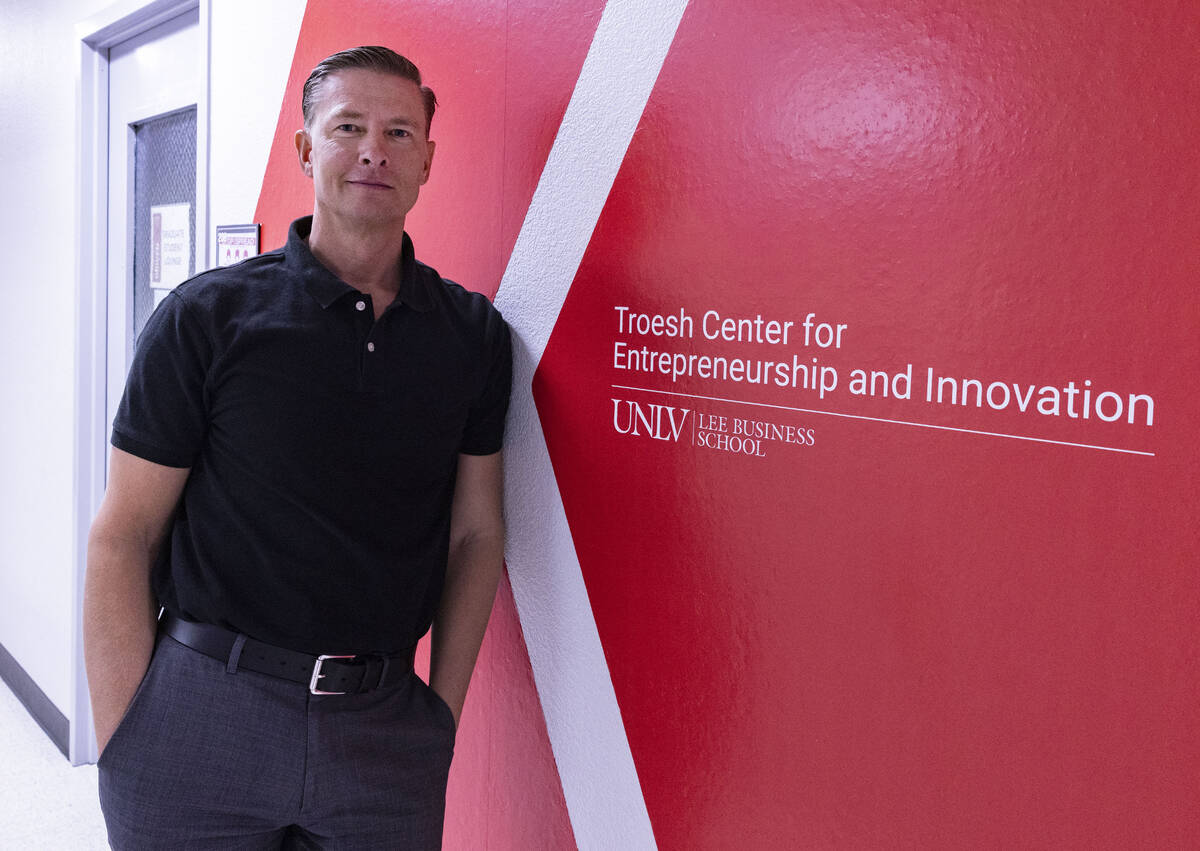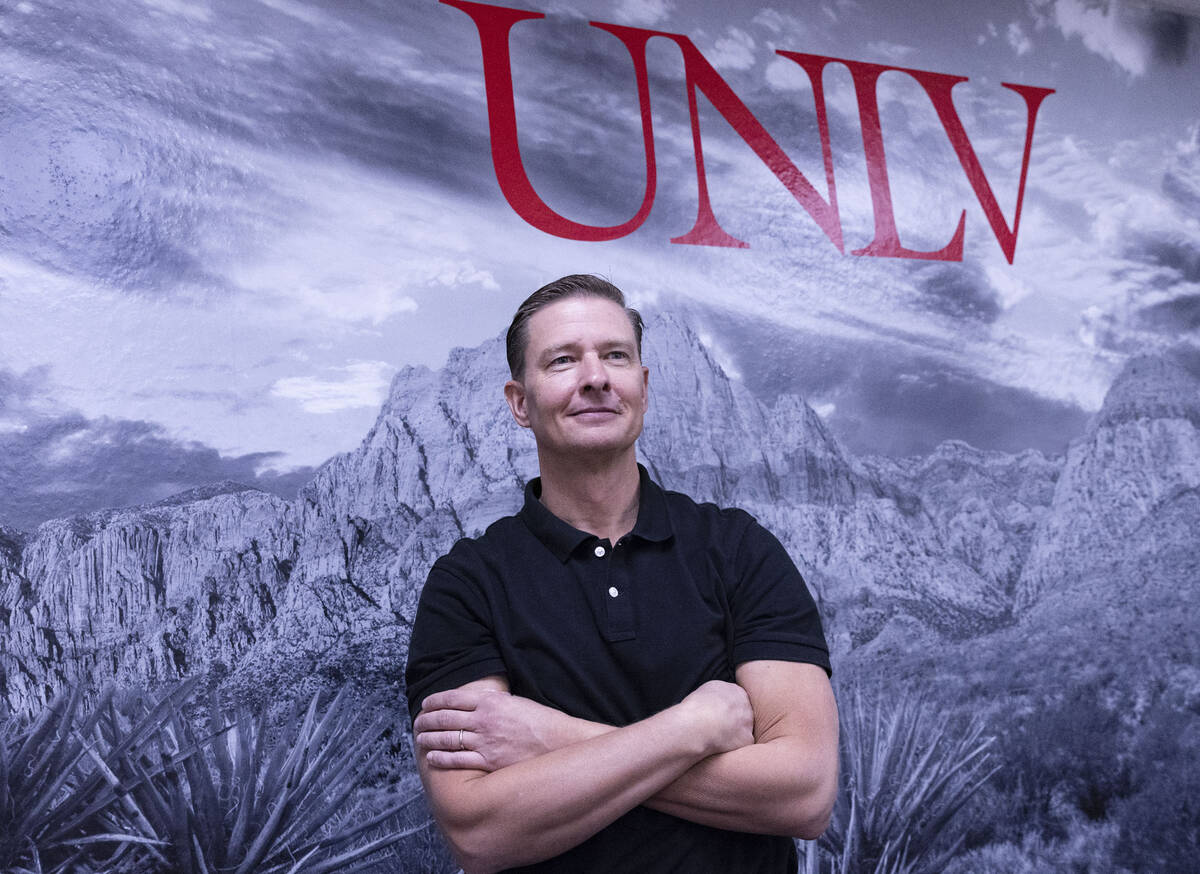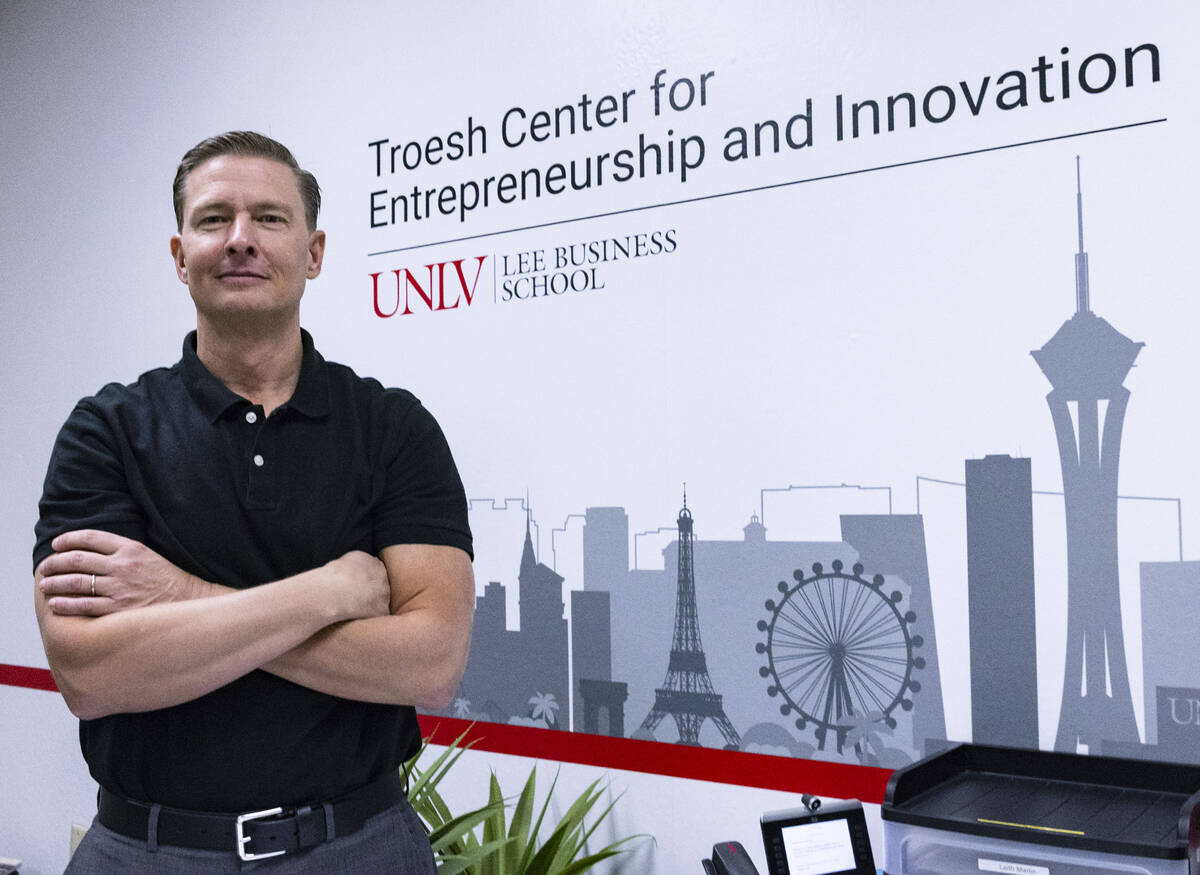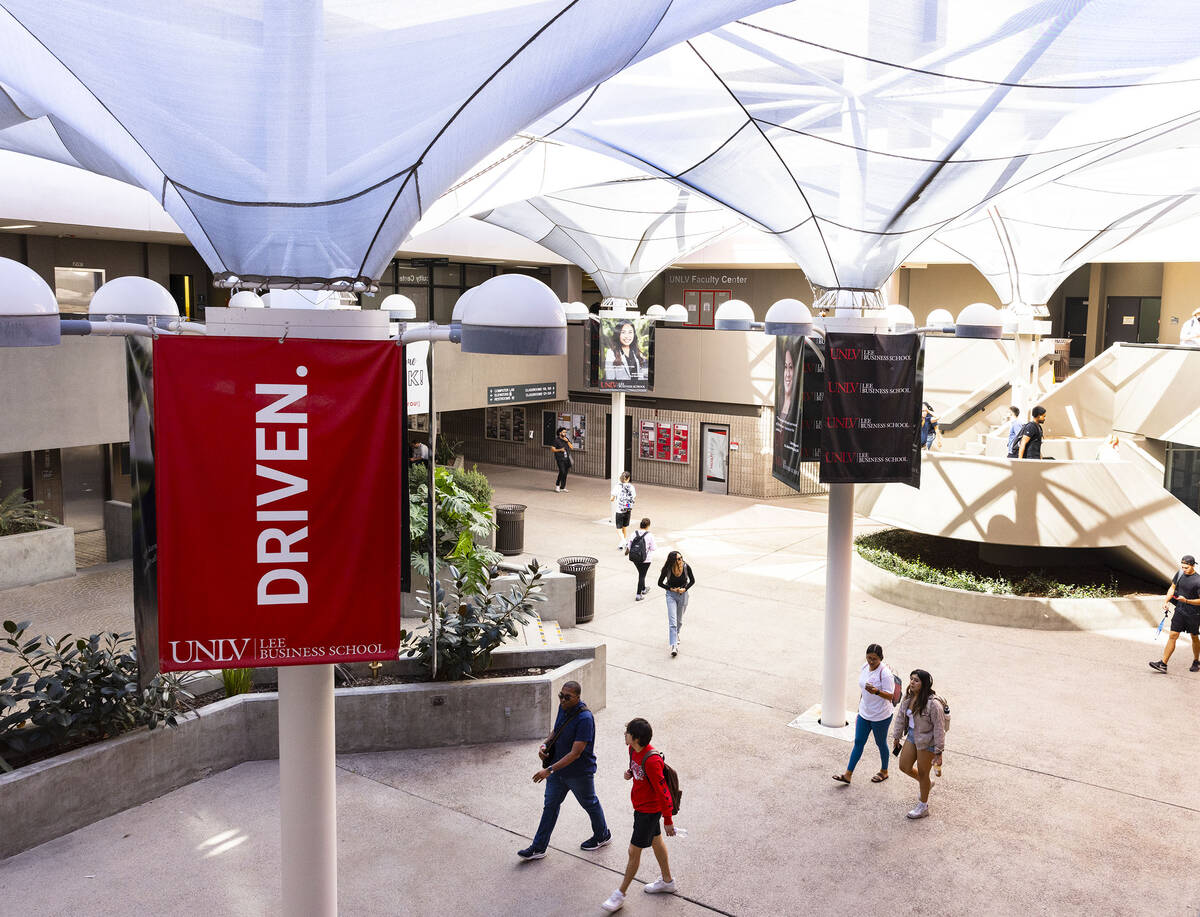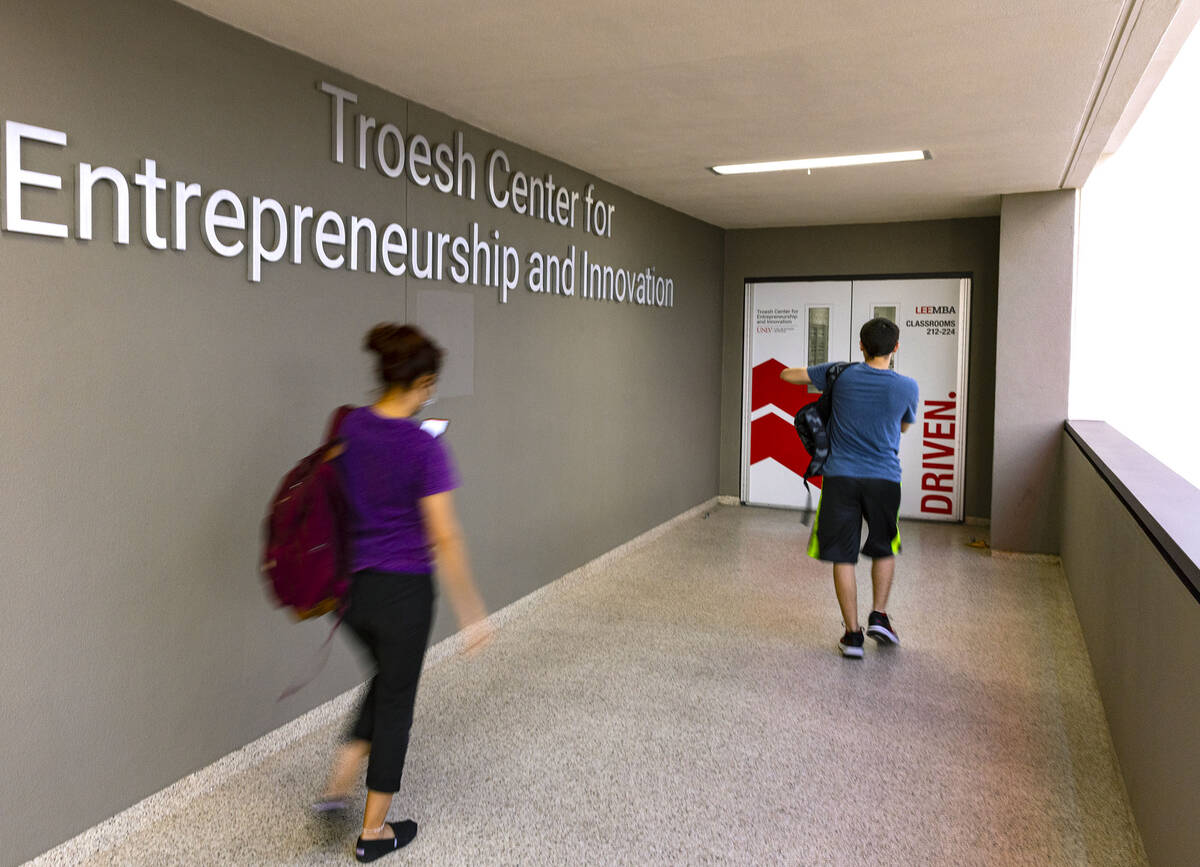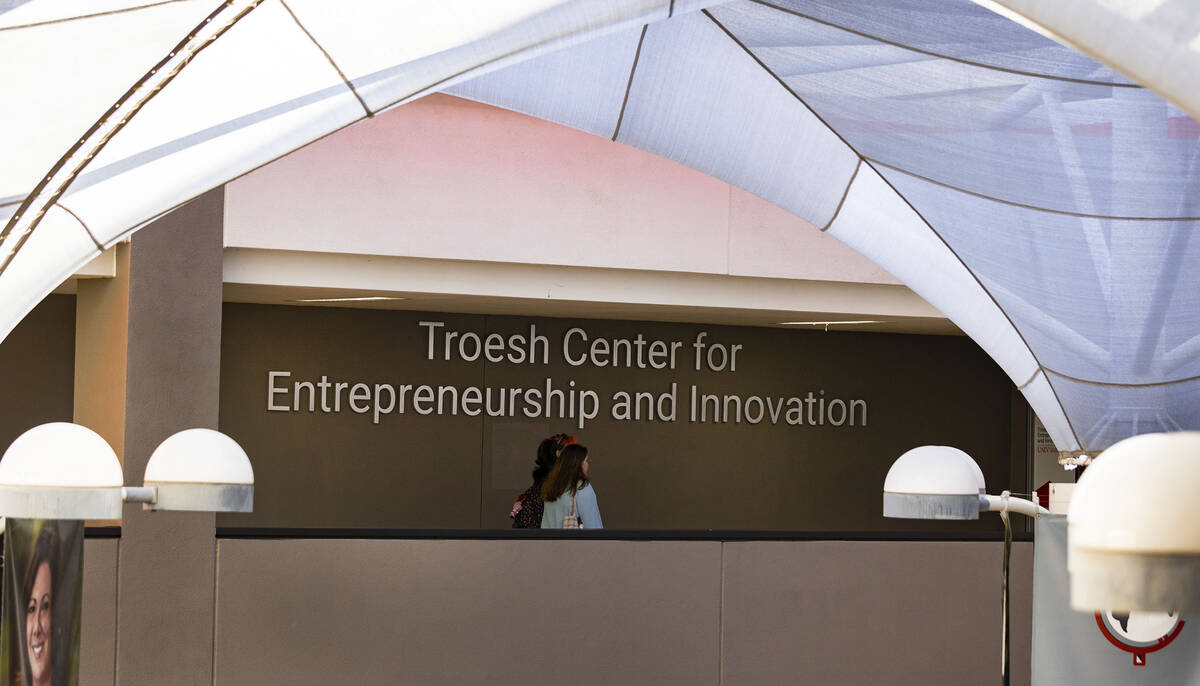UNLV gets boost for students looking to market inventions
UNLV is producing more than just college graduates at its campus. It is also helping to create products and companies thanks to a federal program, and the university’s efforts have been so successful it was given the opportunity to expand the program’s reach.
The National Science Foundation Innovation Corps, or I-Corps, program aims to create commercially viable ideas from research conducted by university professors or students. UNLV has participated in the program since 2017.
But last month, it received $1.18 million as part of a five-year grant from the National Science Foundation and an opportunity to join the Desert and Pacific Hub starting in 2023.
Leith Martin, executive director of the Troesh Center for Entrepreneurship and Innovation at UNLV, said joining the regional Hub will allow it to work with seven other research universities to bring ideas gleaned from academic research to the commercial market.
“The biggest thing the Hub provides, is that (it) allows us to not only leverage mentors across … all of those universities, but also to leverage teaching ability, or teaching capacity,” he said.
Before joining the Hub, UNLV’s I-Corps program was insulated and participants didn’t work with other universities. Now, Martin said, the I-Corps program will be a “2.0 version.”
He said he wants the program to remove “inaction” from the commercialization process of research ideas and allow faculty and students to more quickly figure out if they have a viable idea.
“It’s providing an ecosystem that allows faculty to figure out what’s good and what’s not,” Martin said.
An outsized role in the region
The National Science Foundation, an independent federal agency, launched the I-Corps program in 2011. The goal was to help researchers better assess their idea’s market potential.
Martin said the program offers mentorship opportunities, connects participants with potential business partners and teaches entrepreneurial strategies. The program can also help launch companies, file new patents or sell intellectual property to existing companies.
There are 10 regional I-Corps Hubs throughout the country and the Desert and Pacific Hub is comprised of eight public research universities. They include Arizona State, Northern Arizona University, University of Arizona, Boise State, University of California, San Diego, University of Hawaii, University of Idaho and UNLV.
The Hubs allow for each university to take a more collaborative approach.
“It’s really about helping to better understand how their inventions can impact society, primarily through our commercial marketplace,” Ji Mi Choi, director of the Desert and Pacific Hub, said.
Choi, who also serves as vice president of ASU’s Knowledge Enterprise, said each Hub contains universities that share strong similarities.
“A Hub takes a broader geographic perspective and it links multiple institutions together,” Choi said. “We all play an outsized role in the economic and community development of our regions.”
From idea to launch
UNLV’s I-Corps program has helped several companies including Promethium Ltd., a startup whose founders include former UNLV engineering students.
The company produces systems to improve indoor air quality and received a $3,000 grant through the program in 2018.
“This was a small $3,000 grant that really allowed us to do a proof of concept on our technology,” Devon Scheg, chief technology officer at Promethium, said. “That grant kick-started us and through there we created tupperware models, where we validated our systems performance in an air purification setting.”
But the program didn’t connect Promethium with resources outside of UNLV such as other universities, Scheg said.
He said having the resources of a Hub would have been beneficial in the early stages of the company.
“We had to do the majority of our outreach internally, it definitely slowed down the process of the amount of connections that we could have made,” Scheg said. “And I think if those connections are already pre-built into a program, it’s going to be able to shoot progress forward very quickly.”
Still, being an early participant in I-Corps didn’t slow the company’s progress. In 2020, it was one of five winners for the Lee Prize for Innovation and Entrepreneurship, receiving $250,000 in funding.
Promethium is now looking to raise capital through a Series A.
‘Operational efficiency’
Martin said joining the Hub will open the door for more UNLV I-Corps participants. Typically, it is only able to support a handful of projects. He estimates the Hub will be able to help up to 15 projects annually.
Choi said there is no limit on how many projects can be supported because a Hub’s operations will be scalable to accommodate as many viable projects as possible.
“There’s a lot that gets done at the Hub level together,” Choi said. “That Hub is meant to create operational efficiency and economies of scale so that not every single partner needs to have their own training team.”
Martin hopes the expanded I-Corps program will help advance Southern Nevada’s business environment while further cementing UNLV’s presence locally and beyond.
“I think it becomes another piece of infrastructure necessary for our university to receive its maximum potential,” he said. “We are a bit of an island … but yet this program couples us together with our peers that allows us to leverage resources across our entire Hub.”
Contact Sean Hemmersmeier at shemmersmeier@reviewjournal.com. Follow @seanhemmers34 on Twitter.



